
Dollar stores are undeniably enticing, offering a treasure trove of goods for what appears to be an unbeatable price. The allure of $1.25 (or less) items can lead shoppers to believe they are making smart financial decisions, especially when inflation impacts household budgets. However, as numerous consumer analysts and shopping experts consistently warn, not every deal found on these shelves truly offers value or, more importantly, safety.
While it’s true that dollar stores can be great for specific bargains, a significant number of products often compromise on quality, safety, or longevity. The trade-off for a lower price tag can sometimes mean purchasing items that adversely affect your health, fail to perform their intended function, or simply end up in the trash much sooner than expected. It’s crucial for consumers to understand which items are worth the low cost and which are best left on the shelf.
This in-depth guide, informed by rigorous research and expert vetting, delves into 14 categories of dollar store products that often fall short. We’ll provide clear, concise, and actionable guidance, helping you make informed purchasing decisions to avoid common pitfalls. By understanding what to bypass, you can ensure your hard-earned money is spent on products that offer genuine performance, durability, and overall value, making you a truly savvy shopper.
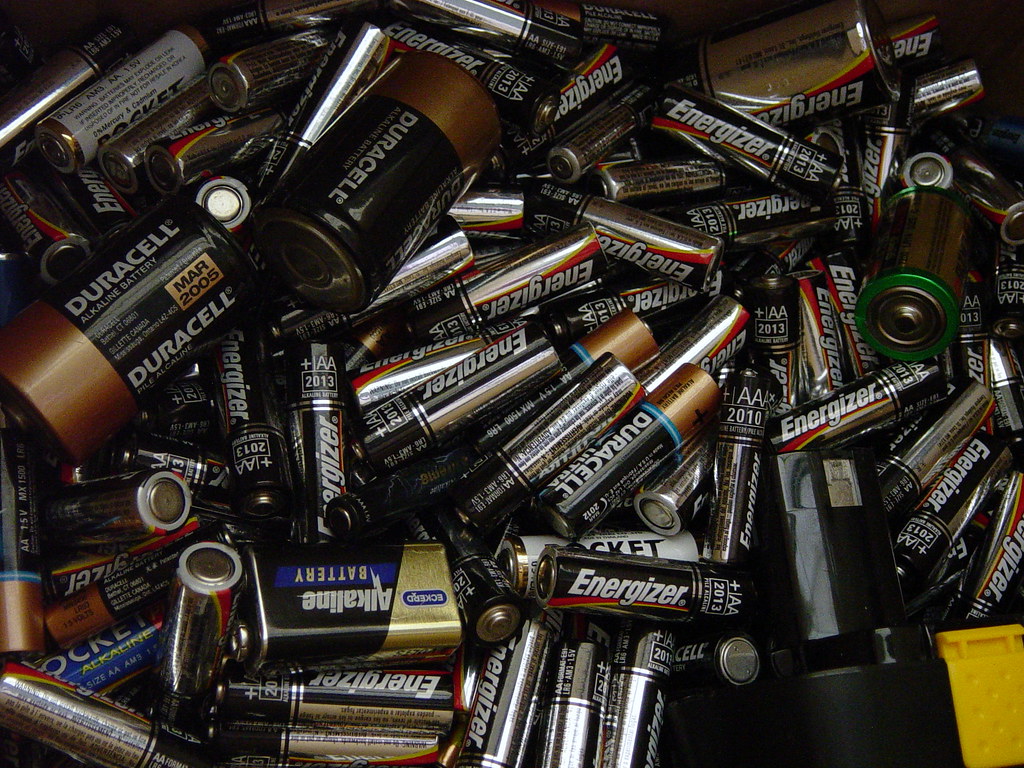
1. **Batteries**When it comes to powering your devices, dollar store batteries might seem like an incredible steal, but experts widely advise against them. The primary concern revolves around the type of batteries typically sold: carbon-zinc. As dollar store experts and deals sites have long warned, carbon-zinc batteries simply “don’t last as long as alkaline batteries,” which are the more commonly preferred and efficient type. This shorter lifespan means you’ll be replacing them more frequently, negating any initial savings.
Beyond their limited endurance, carbon-zinc batteries pose a significant risk to your electronics. They “can damage devices if they leak,” a common occurrence with lower-quality batteries. The $1.25 packets of “heavy duty” batteries often found at Dollar Tree, under brands like e-Circuit and Panasonic, even come stamped with a crucial warning: “Use for low-drain devices,” such as remotes and clock radios. This highlights their unsuitability for anything requiring sustained or higher power.
Kyle James, founder of Rather-Be-Shopping, succinctly captures the expert consensus, stating, “While the prices are enticing, they just don’t last and end up costing you more money than buying Duracell, Energizer, or even the Kirkland brand at Costco.” This sentiment is echoed by others, noting that dollar store batteries are often older than those found at other retailers and are more prone to leakage. This leakage can not only ruin the device they’re powering but also create a messy and potentially corrosive clean-up.
Ultimately, replacing cheap batteries more often means you’re not actually saving money in the long run. Investing a few extra dollars in good quality, reputable alkaline or lithium batteries ensures long-lasting power and device protection, preventing the frustration and additional costs associated with spontaneous battery failure. It’s a classic case where spending a little more upfront saves you significantly over time.
Read more about: Unpacking the True Costs of Owning a Land Rover Discovery Sport: A Comprehensive Guide for Consumers
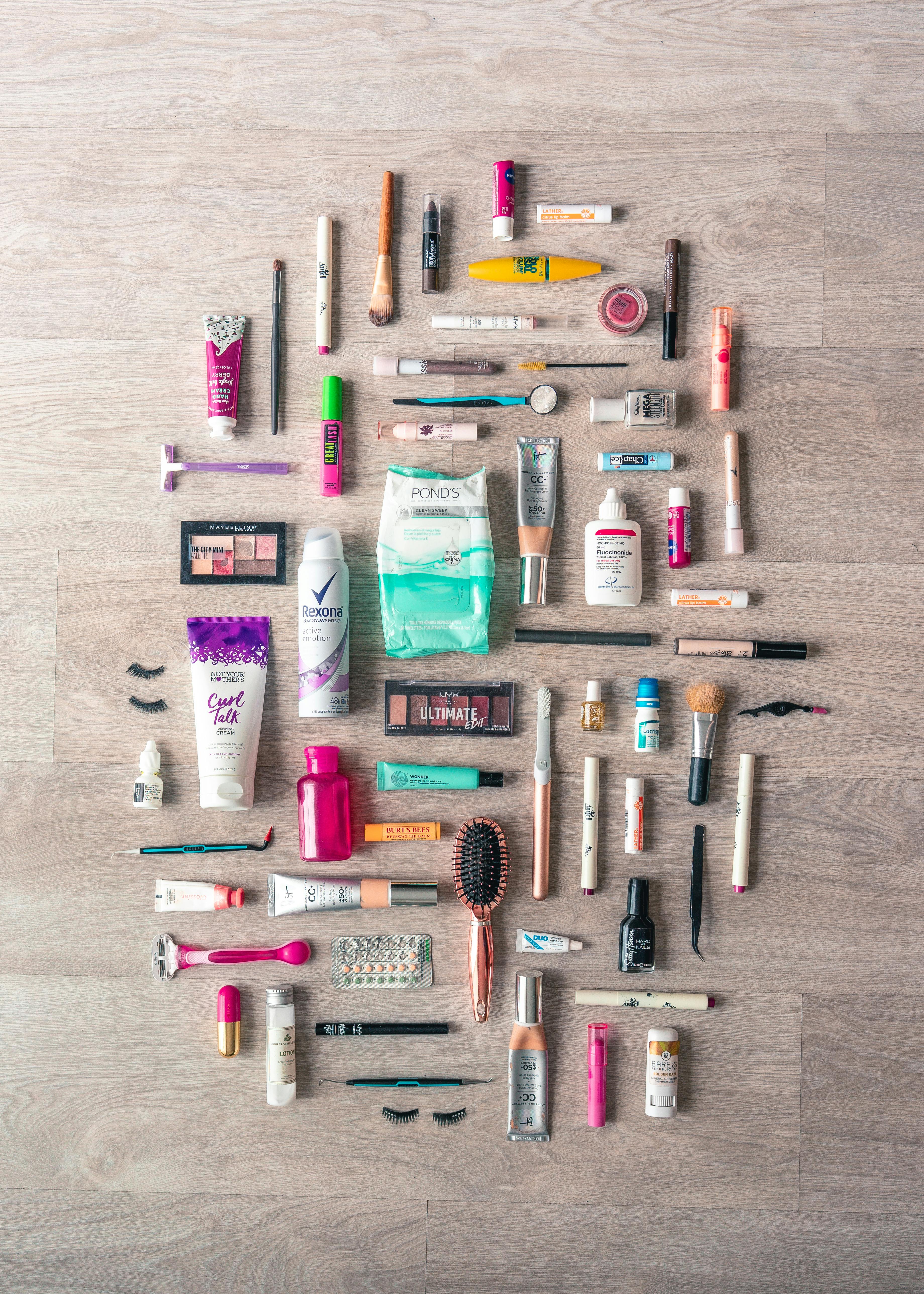
2. **Beauty Products & Makeup**Finding good prices on beauty products can be a persistent challenge, but experts strongly caution against seeking shortcuts at dollar stores for most items. Smart shopping expert Trae Bodge of TrueTrae advises, “If something is not a name brand, skip it, especially with skin care products, and especially those with SPF, which tends to degrade over time.” The effectiveness of products like sunscreen, for instance, can diminish, leaving you more exposed than protected.
A significant issue with dollar store beauty products is the uncertainty surrounding their shelf life. “It’s hard to tell how long these products have been sitting on the shelves, and it’s not worth the risk,” Bodge warns. This is particularly problematic for items with active ingredients or those designed for sensitive skin. Cosmetics and other personal care products often lack rigorous testing of established brands, making their quality and safety questionable.
The contents of these products also raise concerns. Cosmetics claims are not always regulated, and even if a generic product uses similar ingredients to a brand-name item, it may be using cheaper versions, which can lead to skin irritations. Label clues like dibutyl phthalate, propylparaben, formaldehyde, and hydroquinone are red flags, as these chemicals can be problematic for consumers and the environment. Some states are even beginning to regulate the use of synthetic chemicals like per- and poly-fluoroalkyl substances (PFAS) in cosmetics.
While Bodge does note exceptions—like spotting a favorite name-brand product that looks fresh, or a Blistex or Vaseline lip balm stick at $1.25—the general rule is to proceed with extreme caution. Investing in quality makeup ensures longer wear, vibrant color, and happier skin, free from potential irritants. Your face deserves products that enhance, not endanger, so choose wisely and prioritize reputable brands.
Read more about: Slash Your Grocery Bill by 30%: 11 Life-Changing Hacks You Can Use Today

3. **Medicine and Vitamins**When it comes to items for internal use, such as medicine and vitamins, quality and safety should never be left to chance. Experts are unanimous in their advice to skip these products at dollar stores. Trae Bodge emphatically states, “Anything for internal use, like vitamins, should be skipped. Don’t take any chances — just shop at the pharmacy, a big box store or a wholesale warehouse for those.”
The primary concern with dollar store medicines and vitamins is their dubious origins and the lack of stringent regulation. These over-the-counter drugs and supplements “haven’t necessarily been subjected to the same testing and regulations as name-brand products and may not even have any active ingredients.” There’s no real way of knowing what’s actually in them, or if they possess the potency advertised. This means you could be consuming something ineffective, or worse, potentially harmful.
The FDA has taken action against this issue, as it “has been known to send warning letters to dollar store companies for selling over-the-counter drugs from foreign manufacturers.” This underscores the significant integrity and provenance concerns associated with these cheap, generic options. Safety, efficacy, and quality control are often highly questionable, making them a gamble with your health.
Peace of mind is priceless when it comes to your well-being. It is wise to stick to trusted brands from reputable retailers, ensuring your health regimen doesn’t include expired, ineffective, or unregulated pills. By prioritizing established sources, you can confidently ensure your supplements and medications are safe, effective, and of the quality you expect and deserve.
Read more about: Elizabeth Hurley at 60: Unlocking Her Age-Defying Wellness Secrets, From Mindful Habits to Radiant Confidence
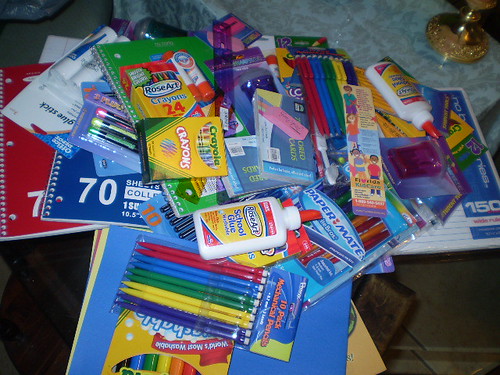
4. **School Supplies**The tempting allure of $1.25-or-less school supplies can be hard to resist, especially when restocking during the school year or preparing for an August frenzy. However, quality often takes a backseat at the dollar store, leading to frustration and ultimately, more expense. Julie Ramhold, a consumer analyst with DealNews, agrees, noting that “quality is usually pretty bad.”
Ramhold elaborates on the common issues: “You could find yourself with mechanical pencils that have cheap lead which breaks often, pens that stop writing even though they should have plenty of ink, or even regular pencils that even when sharpened don’t write so well.” This means students are left with unreliable tools, hindering their work and requiring frequent replacements. What seems like a bargain initially quickly turns into a money pit as items fail prematurely.
The frustration extends beyond mere inconvenience. Imagine a child trying to complete homework with a pen that constantly skips or a pencil that won’t hold a point. This can create unnecessary stress and disruption. Instead of saving money, you end up buying the same items repeatedly, costing more in the long run than a single, quality purchase.
For school supplies, experts advise a different approach. Ramhold suggests, “you’re better off buying a bulk pack at a warehouse store, as these will often be name-brand instruments in larger packages.” She offers personal confirmation, stating, “I can personally confirm that a box of Ticonderoga pencils from a warehouse store got me through at least three years of college without having to buy more.” This advice underscores that investing in dependable, name-brand supplies from other retailers offers superior durability, performance, and actual long-term savings.
Read more about: Beyond the Mortgage: Uncovering the 14 Hidden Costs of Homeownership You Need to Know

5. **Perishable and Packaged Food**Those cheap eats and munchies at the dollar store might call your name, but when it comes to products you’ll actually put into your body, proceed with extreme caution. Experts warn that with both “perishable and packaged foods (including candy and drinks), freshness and quality can be questionable.” This uncertainty stems from not knowing how long items have been sitting on shelves, which can significantly impact their safety and taste.
A crucial step for any food purchase at a dollar store is to diligently “look for expiration dates.” Trae Bodge, a smart shopping expert, emphasizes this, noting that because “you have no idea how long something has been sitting around,” checking dates is paramount. Even with a valid expiration date, the conditions under which the food has been stored can affect its quality, making it less fresh or palatable than items from a standard grocery store.
While Bodge generally supports generics at the grocery store, she advises a different strategy for dollar stores: “in this case I would opt for name brands over generics.” This recommendation acknowledges that even if you find an expiration date, a known brand might offer a slightly higher, albeit still potentially compromised, level of quality control compared to unknown generic options. Canned goods are an exception to this rule, as they “have a longer shelf life than other packaging options.”
Beyond freshness and quality, the perceived value of dollar store food can be misleading. Price checks often reveal that the $1.25 price tag isn’t always a good deal, especially when considering unit price. Experts recommend double-checking the going rate at nearby supermarkets, which frequently run deals and offer trusted store brands that are competitively priced. For most food items, supermarkets or wholesale warehouses are a safer and often more cost-effective bet.
Read more about: 13 Simple Ways to Fuel Your Body: A Global Guide to Nutritious Snacking
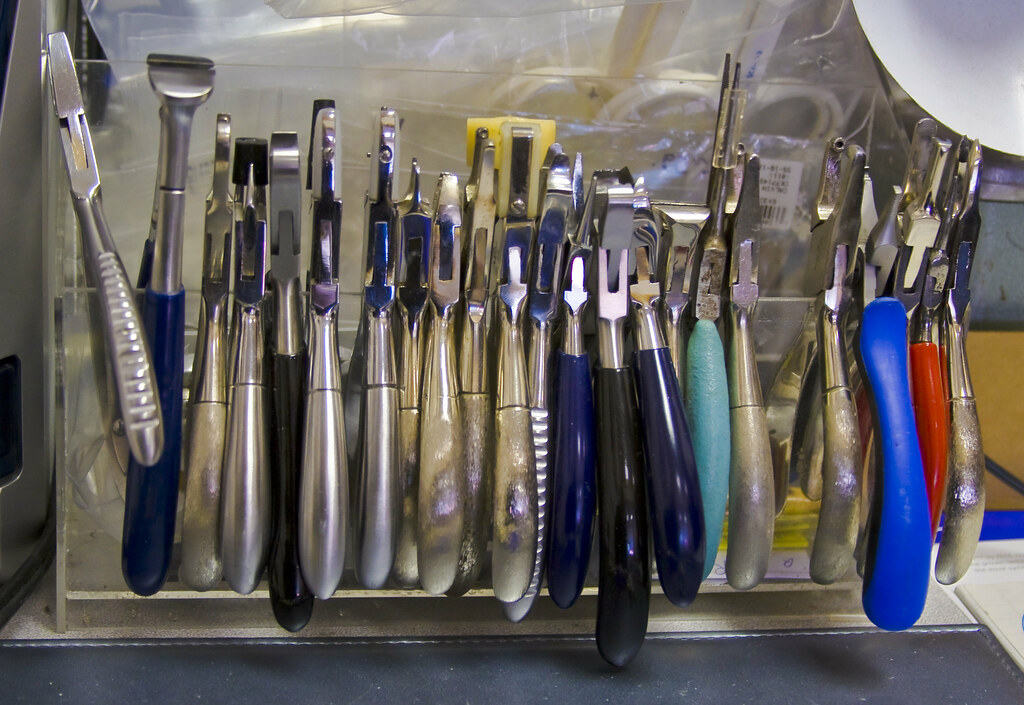
6. **Tools**For do-it-yourself enthusiasts and anyone needing to tackle a home repair, reliable tools are non-negotiable. Experts strongly encourage consumers to steer clear of the dollar store’s tool section, as the quality is notoriously low and the products “probably won’t last long.” A tool failure can quickly complicate a repair, turning a seemingly small savings into a major frustration.
Kyle James of Rather-Be-Shopping urges caution, advising to “Think things like screwdrivers, tape measures, paint brushes, wrenches and the like. Yes, they are cheap, but so is the quality. Trust me on this one: They will do nothing but frustrate you over time.” Imagine a wrench slipping in your hand while trying to tighten a bolt, or a screwdriver stripping almost immediately—these scenarios not only impede progress but can also lead to injury.
The fundamental issue lies in the materials and construction. Dollar store tools are often made of flimsy, subpar materials that are not designed for durability or performance. Unlike quality tools that are an investment in smooth projects and safety, these budget options lack sturdy construction and reliable performance. This means you’re not fixing, but fuming, as the tools break or fail during critical moments.
For any serious DIY endeavor, investing in good equipment pays off significantly in the long run. Sturdy tools made of high-quality materials, often accompanied by a warranty, ensure consistency and durability, making your projects a success rather than a headache. Skipping the dollar store for tools is a decision that will save you time, frustration, and potential injury.
Read more about: 13 Powerful Ways to Declutter Your Mind and Quiet Anxiety in Just 15 Minutes

7. **Toys**Toys at dollar stores consistently rank high on experts’ lists of things not to buy, primarily due to safety concerns and disappointing quality. Julie Ramhold points out, “It’s rare that you find name-brand toys at dollar stores. And if you aren’t seeing name-brand toys, odds are they’re going to be cheap playthings that break pretty easily.” This means even if they’re only $1 or $2, it still amounts to wasted money that could have been better spent elsewhere.
The concern deepens when considering the potential dangers to children. Trae Bodge warns, “I would skip toys across the board. The quality is always disappointing, and the last thing any parent needs is a sad child whose toy broke on the first day of play.” Beyond the emotional disappointment, poorly made toys present genuine safety hazards. Bodge highlights risks such as “small parts that could break off and be swallowed, or battery-operated toys that could overheat.”
Safety standards often take a backseat to low costs in the manufacturing of these budget toys. Some may not be guaranteed to be toxin-free, and others could even contain “forever chemicals” or lead. An October 2022 report, for instance, found lead in toy rings sold at discount stores, leading to a recall. This underscores that what seems like an innocent plaything can hide serious health risks.
For children’s toys, trustworthy brands prioritize both safety and fun, ensuring that playthings are durable and free from harmful substances. Investing in higher-quality toys protects children from potential hazards and extends the toy’s life, preventing early disappointment. A toy should inspire joy, not worry, so choose wisely for playtime peace of mind.
Read more about: 15 Incredible Home Organization Hacks From Professional Cleaners: Your Guide to a Sparkling Home
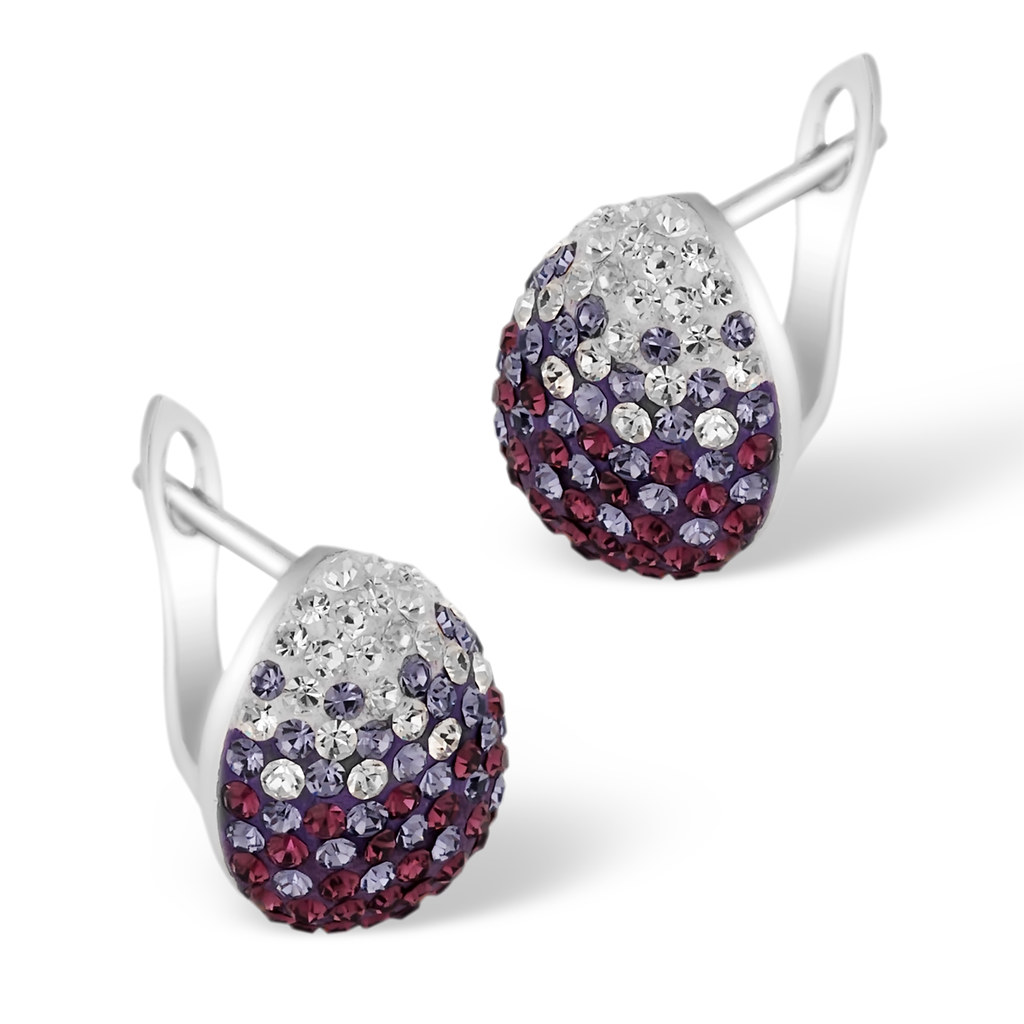
8. **Jewelry**The glittering display of jewelry at dollar stores might catch your eye, but experts universally advise caution. While a piece might serve for a single event as costume jewelry, counting on it for everyday wear is likely to lead to disappointment. As smart shopping expert Trae Bodge wisely suggests, “If you find a piece that you like and plan to wear it once, you’re probably OK. But, if you plan to get some real use out of that ring or necklace, you’ll be disappointed.”
Consumer analyst Julie Ramhold echoes this sentiment, pointing out that “These pieces are cheap for a reason, and it at least means they’re often not very durable.” Beyond mere breakage, these budget baubles can present more serious issues. They “might actually discolor the skin they come into contact with or even cause allergic reactions to those with sensitive skin,” a far cry from the desired aesthetic enhancement.
The concerns extend beyond superficial irritation; hidden dangers can lurk within these seemingly innocent trinkets. Many pieces of dollar store jewelry may contain cadmium, a cheap metal linked to adverse health effects such as lung damage, cancer, and harm to the reproductive system. Given that many states lack specific regulations on cadmium usage in jewelry, these items could be readily available at your local dollar store, posing an unrecognized risk to your health.
Ultimately, while the initial price tag is appealing, the potential for rapid breakage, skin irritation, and even serious health concerns makes dollar store jewelry a precarious purchase. Investing in higher-quality, reputable jewelry ensures not only durability and lasting beauty but also peace of mind regarding safety and wearer comfort. Your accessories should elevate your style, not compromise your well-being.
Read more about: End of an Era: 15 Once-Mighty American Retailers That Vanished Post-2004
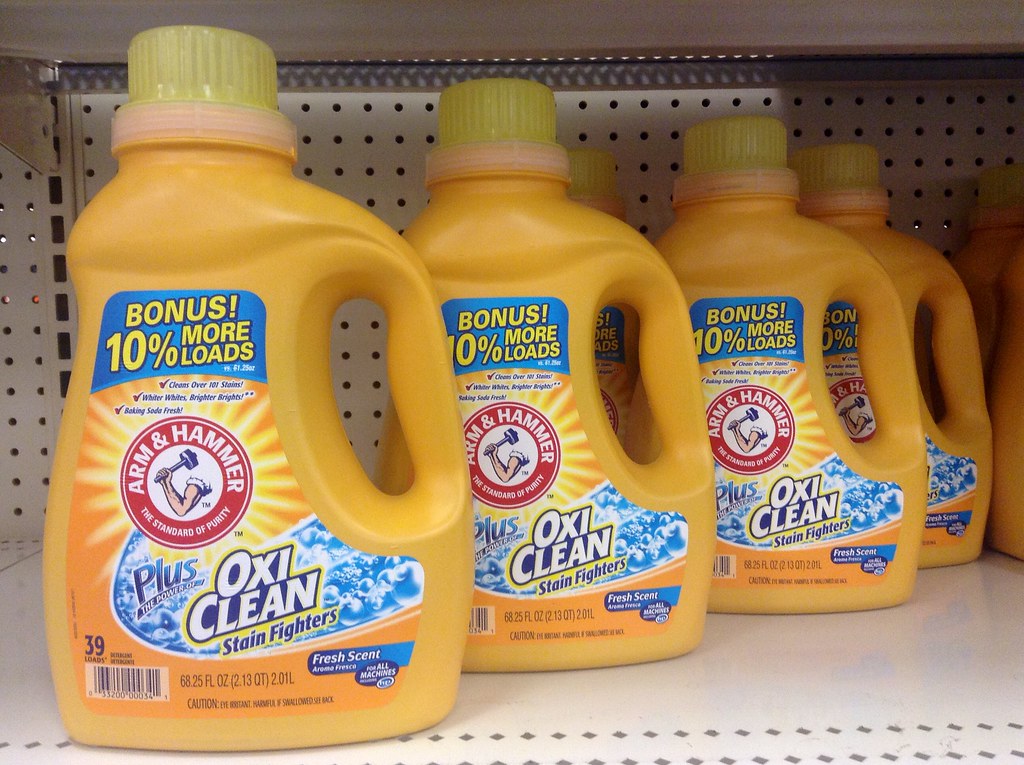
9. **Liquid Detergents**Amidst rising supermarket prices, it’s tempting to stock up on frequently used cleaning products at dollar stores, and liquid detergents often seem like a prime candidate for savings. However, this is one area where the initial bargain can prove to be a false economy, as experts warn you may be wasting money on a product that simply isn’t effective.
Trae Bodge, a smart shopping expert, advises, “Skip liquid detergents, unless there is an expiration date.” This is because liquid detergents, much like many other chemical compounds, “tend to lose their efficacy over time.” If a bottle has been languishing on a dollar store shelf for an extended period—potentially over a year—its cleaning power will be significantly diminished.
Imagine running a load of laundry only to find your clothes are not as fresh or clean as they should be, despite using the recommended amount of detergent. This lack of efficacy means you’ll either need to rewash items or use more detergent per load, effectively canceling out any perceived savings. You end up spending more on a weak product, leading to inefficiency and frustration.
For something as essential as laundry detergent, consistent and powerful cleaning is paramount. It’s far more economical to purchase liquid detergents from reputable retailers where stock rotation is quicker, and product integrity is more assured. Prioritizing effective cleaning over a questionable upfront discount will save you money, time, and the hassle of re-washing, ensuring your clothes truly come out clean.
Read more about: Master Your Laundry: 11 Common Mistakes You’re Making and Simple Fixes for Fresher Clothes

10. **Windshield Washer Fluid**The difference in price for windshield washer fluid between a dollar store and a supermarket might seem negligible, with a gallon at Dollar Tree often priced at $1.25 compared to over double that at a big box store. One might assume that “one colored liquid is as good as the next,” but experts strongly disagree, highlighting critical functional differences that make dollar store options a poor choice.
The primary concern, especially for those in colder climates, is the dollar store fluid’s lack of effectiveness in winter. The jug I found at Dollar Tree explicitly states it “isn’t effective in the winter when people living in colder climates need it most!” This is a crucial flaw, as windshield washer fluid is indispensable for maintaining visibility during icy conditions.
Many quality windshield washer fluids contain anti-freezing elements, such as methanol, which prevent the fluid from turning into ice on your windshield or within the washer fluid tank when temperatures drop below freezing. Dollar store versions are often cheaper precisely because they lack these essential components, leading to potential “hazardous drive[s] if you cannot see out your windshield.” Furthermore, letting your windshield washer system freeze up can be a costly repair, far outweighing any initial savings.
Opting for a reliable, all-weather windshield washer fluid from a trusted retailer, even at a higher price, is an investment in safety and vehicle maintenance. Ensuring your fluid functions properly in all conditions prevents dangerous visibility issues and protects your car’s washer system from damage, proving that a little extra spent upfront can save a lot of trouble and money down the road.
Read more about: Unpacking the True Costs of Owning a Land Rover Discovery Sport: A Comprehensive Guide for Consumers

11. **Plastic Food Storage**In an effort to minimize waste and store leftovers efficiently, plastic food containers are a kitchen staple. However, when it comes to options from the dollar store, experts like Trae Bodge issue a significant warning: avoid them for food storage. The core issue lies in the materials used and their interaction with heat.
Bodge explains, “Whether we are cooking with these containers or using them in the microwave or dishwasher, applying heat can release toxins in certain plastics.” This means that the very act of reheating your meal or sanitizing the container could potentially contaminate your food with harmful chemicals. Given the typical offerings, “you’d be unlikely to find BPA-free or other ‘safe’ plastics at the dollar store,” making the risk substantial.
The presence of chemicals like bisphenol A (BPA) in plastics, particularly those marked with the number 7 on the bottom, is a known concern, linked to various health issues. Therefore, trusting cheap, generic plastic containers for anything that comes into contact with your meals, especially when heated, is a gamble with your health. The convenience simply isn’t worth the potential hazard.
For safe and healthy food storage, investing in BPA-free plastic containers, glass, or other reputable materials from trusted retailers is a far better choice. If you do acquire dollar store plastic containers, Bodge’s advice is clear: “I would avoid this category unless you plan to use them for storing non-food items.” This ensures you protect yourself and your family from unintentional chemical exposure, making your kitchen a safer place.
Read more about: 15 Road Trip Hacks That Will Save Your Sanity and Your Wallet
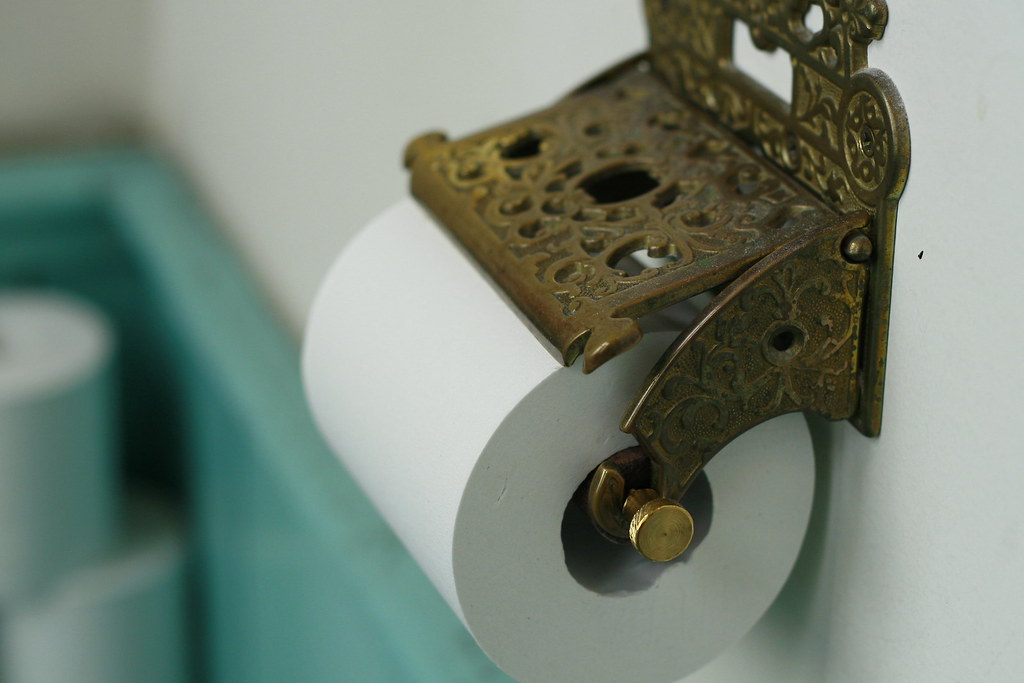
12. **Toilet Paper**Toilet paper is a household necessity, but it’s an item where scrimping at the dollar store can lead to frustration and ultimately, no savings at all. According to consumer analyst Julie Ramhold, there are “two scenarios to buying toilet paper at a dollar store, and neither are preferable,” highlighting the compromises you’ll inevitably face.
In the first scenario, you might find yourself with “off-brand toilet paper that has fewer fibers, or is 1-ply, or both.” This combination is notoriously unpleasant and ineffective, forcing you to use significantly more per bathroom break just to achieve adequate cleanliness. What seems like a low upfront cost quickly escalates as rolls disappear at an alarming rate, making it a false economy.
The second scenario involves finding name-brand, good-quality toilet paper. However, Ramhold warns that “the price won’t be worth it.” She elaborates that “Price per unit is bound to be higher than if you shopped elsewhere,” meaning even if the quality is acceptable, your wallet is still losing out. Michael Bonebright, former senior editor at Dealnews.com, confirms this, noting that dollar stores often stock brand-name items in smaller quantities, resulting in “fewer sheets per roll from the dollar store, so you’ll go through it much faster.”
Considering both the dismal quality of off-brand options and the poor unit value of name brands, dollar store toilet paper is a definite pass. For both comfort and genuine savings, purchasing paper products from big box stores or warehouse clubs, where larger quantities and better unit pricing are standard, is the smarter choice. Your bathroom experience, and your budget, will thank you.
Read more about: Beyond the Cramps: 12 Essential Colon Cancer Warning Signs, Including Those Affecting Your Appetite, You Should Never Ignore

13. **Electronic Accessories**The dollar store aisles often overflow with power cords, earbuds, and various other tech accessories, all boasting incredibly appealing price tags. However, as experts frequently warn, when it comes to electronics, “you get what you pay for.” Smart shopping expert Trae Bodge cautions, “The price tag will be appealing, but there’s no knowing if the manufacturing of these items is up to snuff.”
The stakes are high when you’re connecting these cheap accessories to your valuable devices. Bodge asks, “Given that you’d be plugging them into your beloved smartphone or tablet, why chance it?” The risk isn’t just a short lifespan for the accessory; dollar store electronic accessories “break quickly, and can end up damaging your phone, computer, television, and other gear.” This potential for costly damage far outweighs any initial savings.
Kyle James of Rather-Be-Shopping shares a firsthand experience, stating, “I made the mistake of purchasing a dollar store power cord for my phone when I was in a pinch, and it lasted only a couple of days before the cord stopped charging — unless it was in the perfect spot.” This anecdote perfectly illustrates the unreliability and frustration that often accompany these budget buys. They simply do not meet the same standards as trusted brands.
To safeguard your expensive gadgets and ensure consistent performance, it is imperative to spend a little extra money on a trusted, UL-listed brand for electronic accessories. Investing in quality cables and chargers prevents spontaneous failures, potential device damage, and the recurring need for replacements, ultimately saving you money and hassle in the long run. Don’t let a low price tag lead to a gadget disaster.
Read more about: End of an Era: 15 Once-Mighty American Retailers That Vanished Post-2004

14. **Knives**A sharp, reliable knife is an indispensable ally in any kitchen, but the dollar store’s cutlery section is one place where aspiring chefs and home cooks should absolutely steer clear. Far from being a trustworthy kitchen companion, dollar store knives “often resemble a butter knife’s distant, less functional cousin,” quickly turning meal prep into a frustrating and even dangerous chore.
The issue begins with the blade itself, which is typically dull and poorly constructed. Imagine the struggle of “struggling to slice a ripe tomato,” an experience that reveals the knife’s inadequacy. This “dull blade turns chopping into a perilous exercise,” not only making tasks harder but significantly increasing the risk of injury. Experts consistently highlight that dull knives are more dangerous than sharp ones because they require more force, leading to slips and cuts.
Beyond the blade, the overall construction is equally subpar. The “flimsy handle feels like it might snap with the slightest pressure,” further undermining both safety and functionality. Quality knives are an investment in high-carbon stainless steel blades and sturdy construction, offering reliable performance and durability. Dollar store knives, however, “are not known for” these essential attributes, offering a false economy that could end up costing you more in frustration or even medical bills.
For serious kitchen endeavors, prioritizing safety and efficiency means investing in a quality knife that genuinely “slices, dices, and makes kitchen prep a breeze.” Your hands and your culinary ambitions deserve tools that perform reliably, ensuring smooth, safe meal preparation for years to come. Skipping the dollar store for knives is a smart decision that prevents frustration and potential injury, allowing you to truly enjoy your time in the kitchen.
Read more about: Revitalize Your Ride: A Step-by-Step Guide to Reupholstering Your Car’s Door Panels with Professional Flair
Navigating the aisles of a dollar store can certainly feel like a treasure hunt, but as our extensive exploration reveals, not every shiny deal is truly golden. While the allure of low prices is undeniable, particularly when household budgets are tight, the long-term costs of compromised quality, potential safety hazards, and sheer ineffectiveness far outweigh any immediate savings for a significant number of products. From the fleeting power of cheap batteries to the dubious safety of discount cosmetics and the outright danger of flimsy tools, a savvy shopper understands that true value lies in durability, performance, and peace of mind. By applying expert advice and discerning judgment, you can confidently distinguish between genuine bargains and costly pitfalls, ensuring your hard-earned money is spent wisely on items that truly serve their purpose, keeping you and your family safe, efficient, and ultimately, smarter consumers in every aisle.



